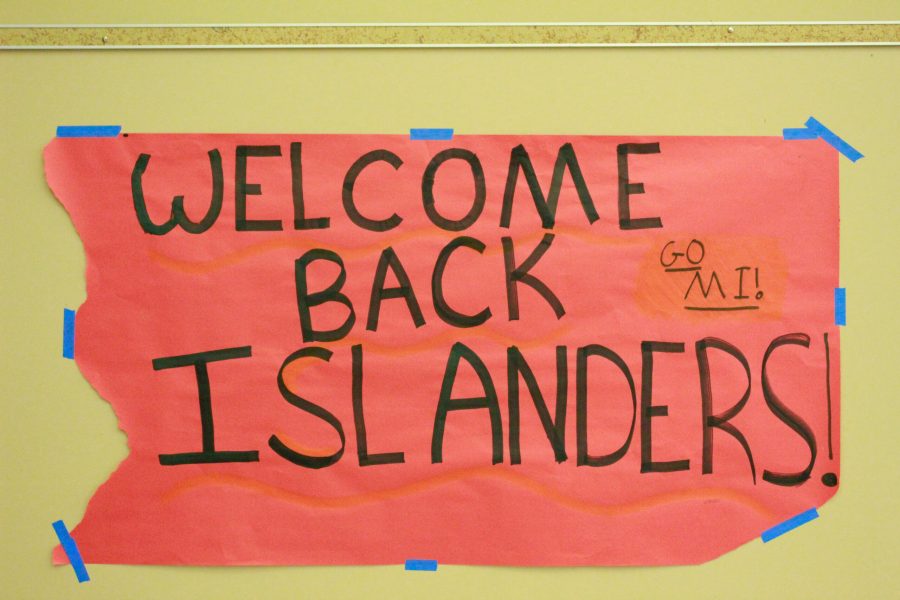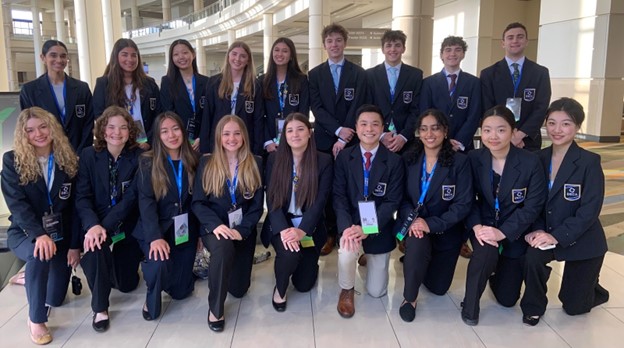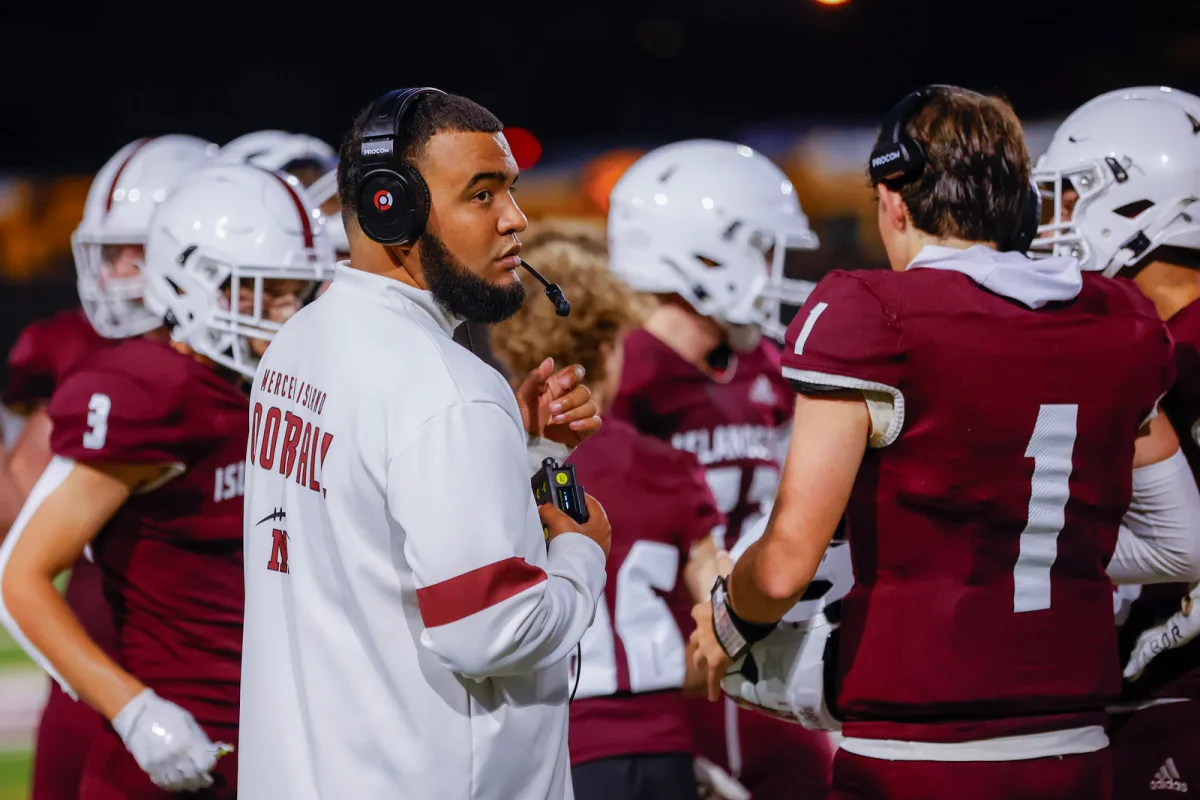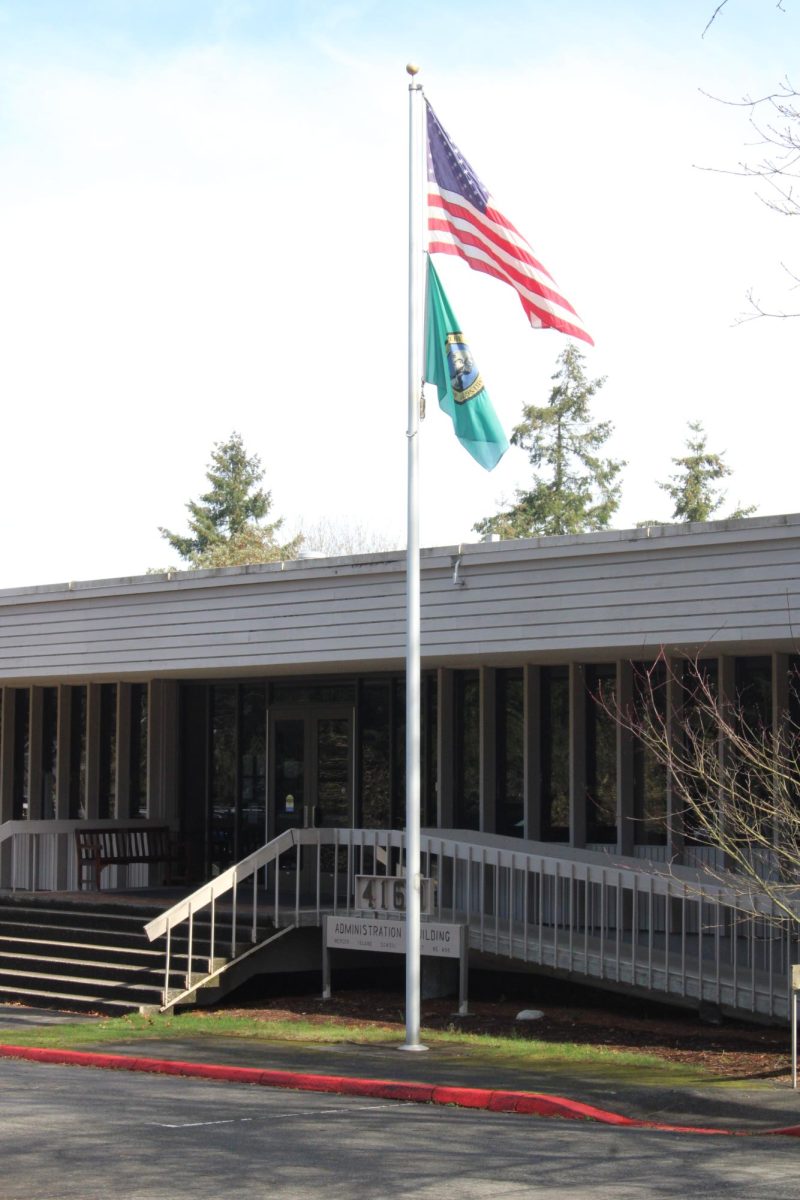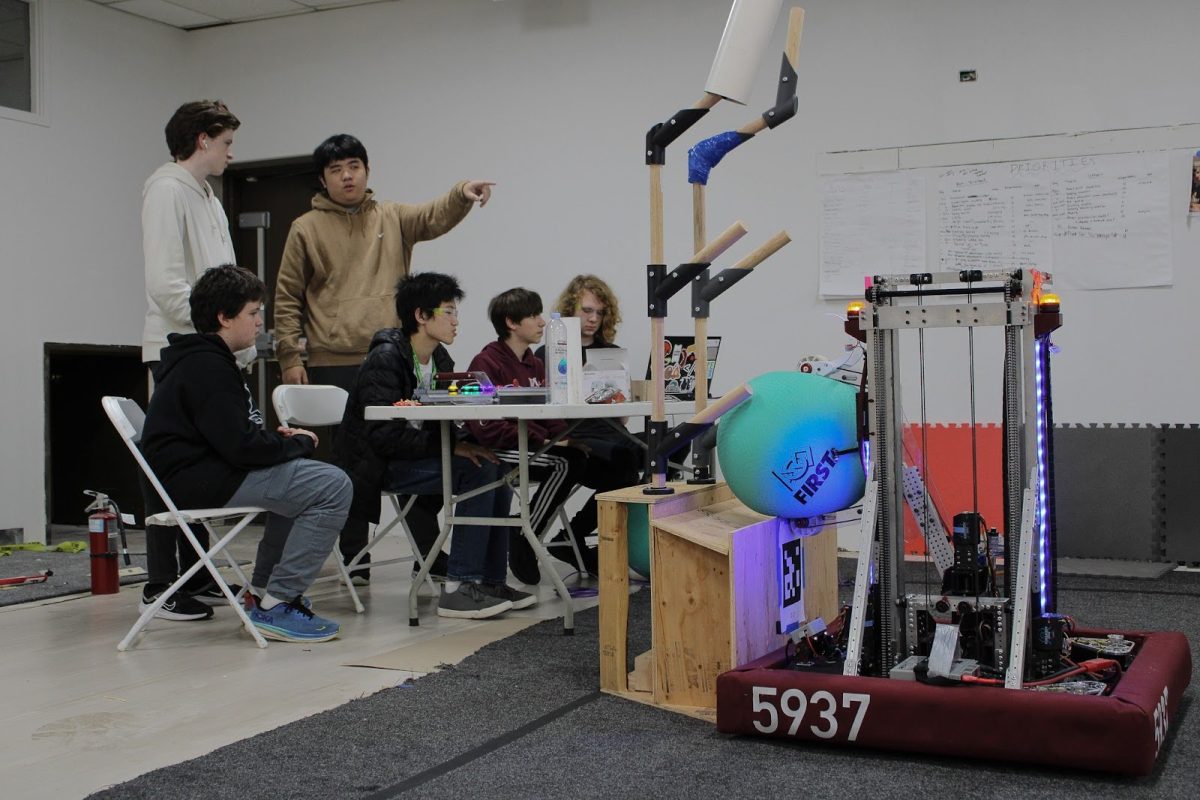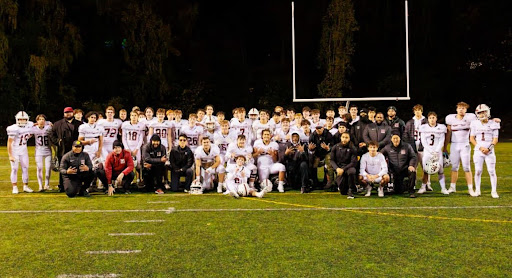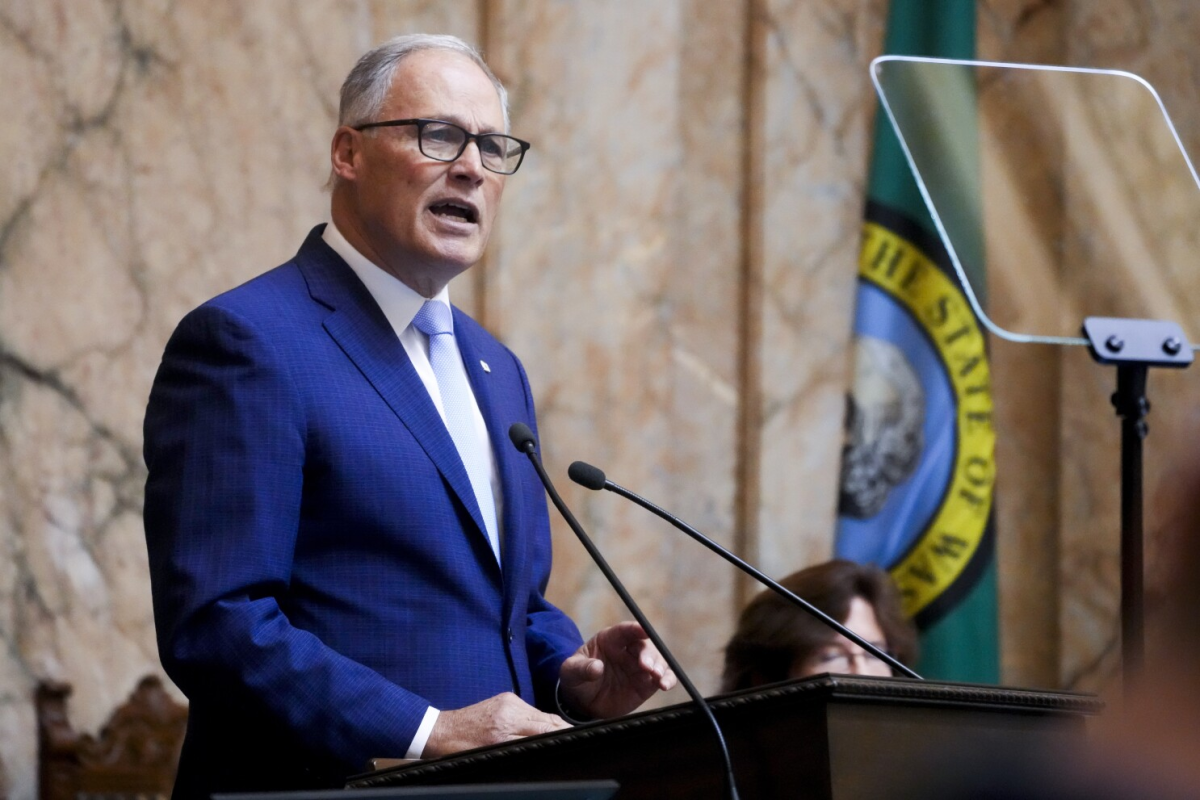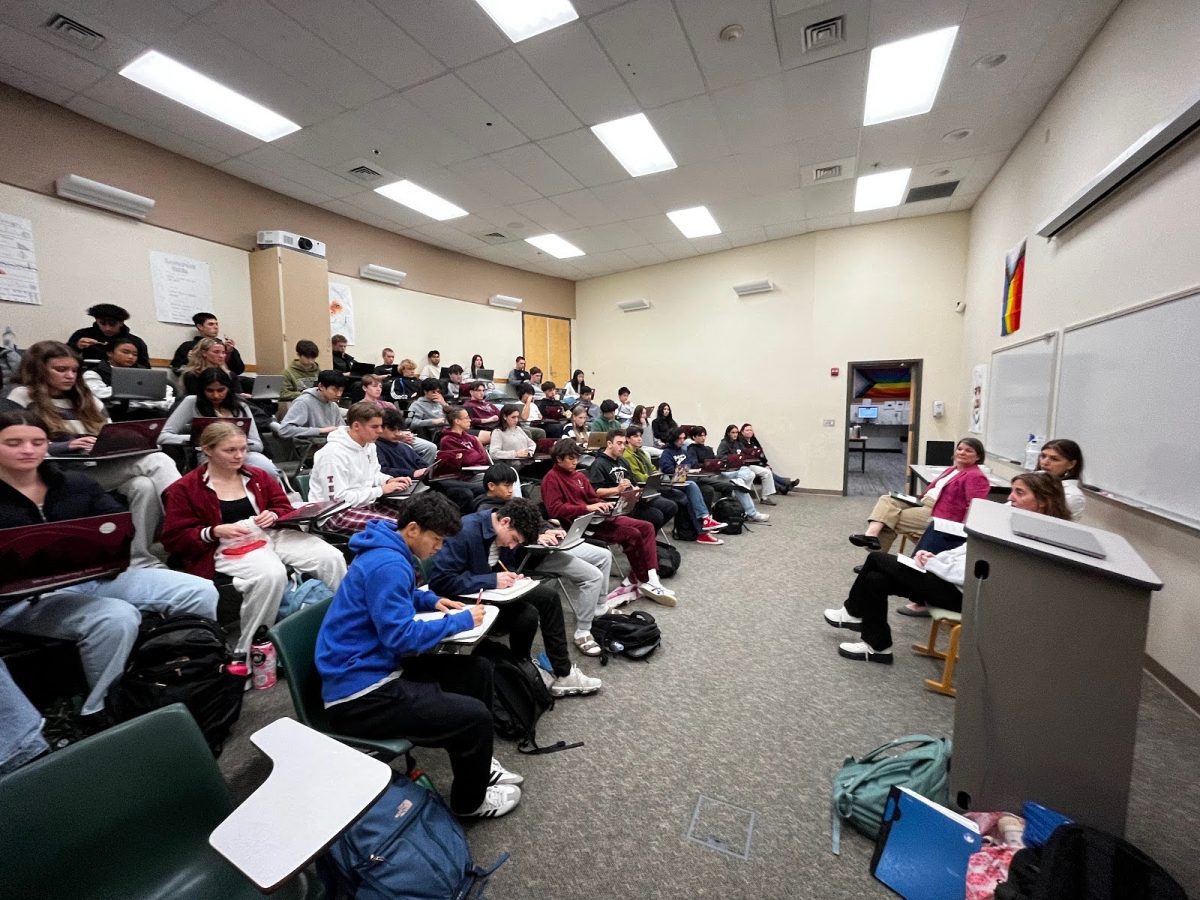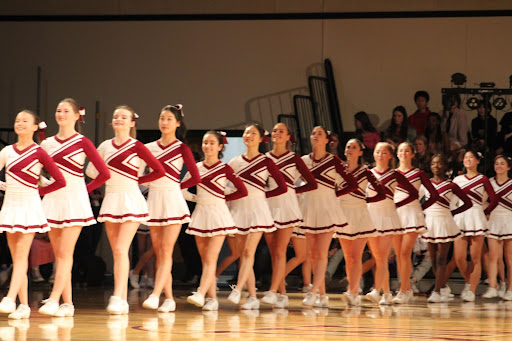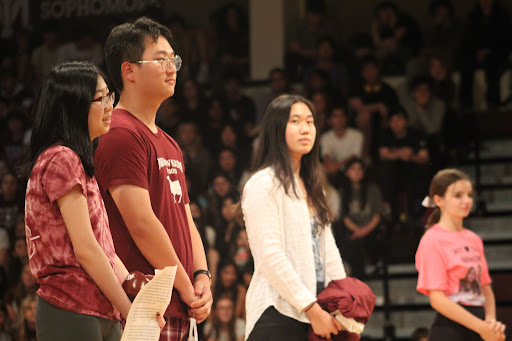COVID-19 has made this school year at MIHS challenging for everyone. For the majority of the year, MIHS has followed a “red learning” model where all teachers hold their classes in a remote setting. This has limited connections between students and staff, but MIHS administrators have found creative ways to improve the online learning experience.
Throughout the year, the District carefully planned a safe and effective way for students to go back to school. Today, March 22, MIHS began the transition into an “orange learning” or hybrid model for the last few months of the school year. The District as well as MIHS administrators, students and teachers have different perspectives about the effects of hybrid learning on students and teachers.
Online Present: A Focus on Staff and Student Wellbeing
During online learning, MIHS administrators are working to establish connections virtually with teachers and students while preparing to reopen this year.
Several members of the administration shared their experiences on starting the school year in a virtual learning environment. They have searched for specific ways to continue school traditions and strengthen inter-faculty relationships.
As online school has made it difficult for staff members to connect with one another, MIHS’ admin team is working to increase interactions and spread positivity among the staff.
“We are looking at ways right now to help support staff wellness,” associate principal Jeff Jones said. “We are going to roll out a way that staff can send anonymous shoutouts to one another just so that people know that they are appreciated and cared for.”
In the spirit of promoting connectedness, many staff members have written virtual notes to someone else on the team that gives a meaningful compliment about that person. These notes add another element to staff interactions in addition to Zoom meetings.
Since staff meetings are held on Zoom, it is challenging to make every staff member feel included, especially those new to the school. Each note allows every member to feel grateful for being a part of the school.
“I think that lens of gratitude is something that we are very conscious of because it has such a positive impact on our mental state,” associate principal Lisa Deen said.
Staff members also made calls known as “Sunshine Calls” that acknowledge students who have contributed positively to online learning. Callers give personal shoutouts to students to let them know that the school appreciates their hard work.
In addition, the administration has created the Cares Team, which is a way for the staff to make regular phone calls and emails to reach out to students who need extra support.
Team members offer assistance to students who may be struggling with their schoolwork and need guidance from another student or a staff member.
“They made sure [the students] had everything they needed for a successful start to the second semester, whether that was textbooks or Zoom links or anything like that,” Deen said.
The administration hopes that the Cares Team will help students feel less alone and know that the school cares about their well being.
“We are really trying to diminish the isolation that people may feel and trying to help people stay connected in this time,” Deen said.
Hybrid Future: The Return to Campus
This period of remote learning and isolation is coming to an end, with hybrid learning beginning at MIHS March 22 for freshmen and seniors and April 15 for sophomores and juniors.
The District has decided to move forward with hybrid learning after assessing the COVID-19 statistics in King County, as they believe that the current state of the pandemic is conducive for students to move into hybrid learning.
In preparation for in-person learning, MISD has created an array of measures to combat COVID-19 on campuses in conjunction with CDC guidelines. Everyone who enters the building is required to wear a mask, socially distance and clean their hands every time they enter and exit the building.
The district has also invested in a new, high-quality HVAC system, which will be cycling outside air into the building 12 hours per day. Additionally, everyone who enters the building is required to fill out a health screening, which attests that they are not experiencing any symptoms of COVID-19 and have not been around anyone who has recently tested positive.
MIHS principal Walter Kelly is confident that these reopening plans will be successful at keeping students and staff safe from the spread of COVID-19.
“While there is risk, the risk at school while using these measures is minimal,” Kelly said. “[MIHS] is going to be a safer place than a grocery store or a restaurant.”
The district is not planning on shutting down schools if a student tests positive for COVID-19, but instead hopes to rely on their safety measures to mitigate the potential for an outbreak to occur.
“There will be some cases, most likely,” Kelly said. “Even if somebody does have COVID, if we follow those safety measures, [MIHS] would not be the point of spread or contagion.”
However, one sticking point for critics of the reopening is the higher potential for spread during gatherings in common areas, such as lunch. Principal Kelly is hopeful that the new lunchroom procedures, such as doing one seat per table in the upper and lower commons as well as the gym for lunch and encouraging students to eat at home will effectively prevent possible transmission amongst the student population. For those who want to buy lunch, a new system has been devised.
“We’re going to have grab-and-go lunches for students who want to buy lunch,” Kelly said. “[We’ll] have stations in the different areas where students are eating so they don’t all go to one place, and they’ll just grab it [in a socially distanced line] and then go sit back at their table.”
Another key component to reopening is the wellbeing of teachers, a debate occurring both nationally and on Mercer Island. MIHS is attempting to balance the need to return to in-person instruction and teacher safety within their reopening policies.
“If a teacher is high risk, they can qualify for leave under their contract,” Kelly said. “If they don’t qualify for that type of leave, they are required, as part of their job, to [be at school] in person serving students if students are here in person.”
However, this stance is unpopular among some students and teachers.
“[There] has still been limited information about the exact measures and there are still many teachers who have not been vaccinated,” Jada Hughes, a sophomore at MIHS said. “[Teachers] should not be forced to go back unless they’ve been vaccinated.”
Danielle King, an English teacher at MIHS, agrees with Hughes’ concerns.
“I’m disappointed that waiting until teachers and staff were fully vaccinated before returning to in-person teaching during a global pandemic was not prioritized,” King said. “[As] of right now, I do feel safe on campus. But ultimately, my peace of mind really comes from the fact that I will be fully vaccinated upon returning to campus–that won’t be the case for all of my colleagues and that is deeply concerning.”
The forced return for all teachers, regardless of vaccination, is coupled with another structure that has caused anxiety for students and staff: a lack of testing.
“We are not doing any COVID testing on campus,” Kelly said. If somebody does have symptoms we are going to advise that they do [get a] test. We are not going to provide that testing on campus.”
This lack of testing is seen by some as alarming, as it prevents the school from knowing if students have asymptomatic cases of COVID-19 before they come into the building and generally blinds the school from the truth about COVID’s presence on campus.
“I think we should be doing testing weekly/biweekly,” Hughes said. “[Considering] the resources the school has, we should be doing better.”
As for equity for students who elect to remain fully virtual, MIHS is committed to protecting the quality of their instruction, even as their classmates return to the building.
“[It’s really important] that we don’t diminish service for those that are streaming, but that we’re enhancing for those that come in,” Kelly said. “Number one, [they should] never be ignored, [and] that [need] is part of the instructional planning. Number two, part of that Wednesday design, is that there’s asynchronous time to provide a buffer for teachers to connect with kids that may be struggling.”
While the district has communicated that ensuring equity for streamers is a priority, some students are concerned that these efforts will not be enough.
“[There] hasn’t been adequate planning and accommodations for the streamers,” Hughes said. “[The] district is doing the best they can with the resources they have, but there is so much students and teachers don’t know so I feel like we are going in quite blind.”
Among the faculty, there is apprehension around preserving the quality of instruction in the hybrid learning model, as it has teachers juggling two separate classes at once.
“We have an incredibly talented staff, no doubt, but even the best instructors in education are struggling to provide equal opportunity to all students in a hybrid model, as data around the country indicates,” King said. “No student self-selecting to remain remote due to health and safety concerns should feel like they’re receiving a less-quality education.”
Despite the concerns by many students and staff, the administration wants to choose a learning model that they believe works best for students. Kelly, along with Superintendent Donna Colosky and Assistant Superintendent Fred Rundle, believe that hybrid learning will benefit students both academically and socially.
MIHS wants to support the concept of the “whole child,” which refers to a student’s academic performance as well as their social and emotional well being. Rundle believes that online learning is not beneficial to this concept.
“We believe that if we are going to serve the whole child, we need to get our students back with our staff so they can access the full complements of the many services that are provided in schools,” Rundle said.
However, because bringing students fully back to school is not possible at this time, the district made a compromise to support all students and their families by creating a hybrid model.
“We absolutely respect families who do not feel that it is in their child’s best interest right now to return, and that is why we have chosen a hybrid model where students can still stream in, providing equitable access to everyone,” Rundle said.
Key Takeaways:
During this time of online learning, the District and MIHS administrations have worked hard to connect with staff members and students to support their social-emotional health, all while planning the return to hybrid learning.
This planning has paid off, as MISD is now far ahead of other districts in the state when it comes to structuring hybrid learning at an important time. Governor Inslee signed an emergency proclamation on March 15 that mandates all schools to return to some form of in-person instruction by the end of this school year.
Both MIHS and the district as a whole are confident that the measures put in place around masking, social distancing and small class sizes will be enough to combat COVID on campus with help of an improved HVAC system.
However, some concerns still linger for both students and staff members. Uncertainty surrounding vaccinations for teachers, a lack of COVID testing and confusion about equity with the hybrid model are taking center stage in this discussion as MIHS prepares to go back to school.
As March 22 rapidly approaches, MIHS’ safety measures and their commitment to equity are about to be put to the test.
“I am quite confident that MIHS students will rise to the occasion, put forth an ‘all-hands-on-deck’ effort, and uphold the safety and health protocols with the utmost care,” MIHS English teacher Danielle King said, “I truly believe this and have faith in the students to look out for their community.”


